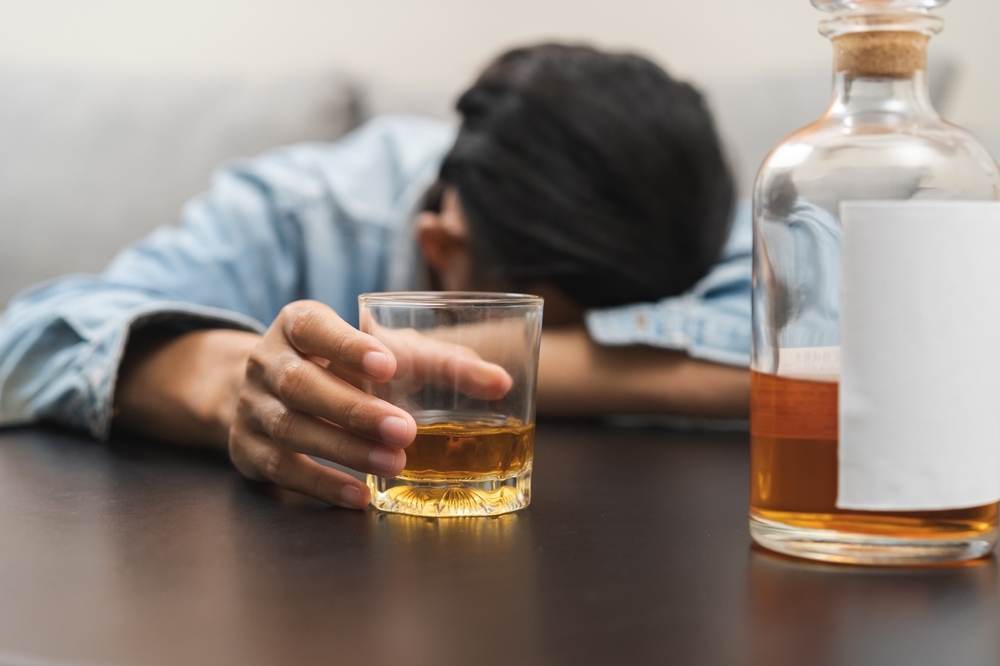Last Updated:
March 28th, 2025
Alcohol addiction treatment aims to change your relationship with drinking. This requires work to ‘change thoughts, behaviours and relationships related to addiction.’ A core part of rehab is a shift in perspective. This shift can then help us to make more informed choices that put our health first. This helps people to live healthier and happier lives and effectively loosens the grip of addiction. But this does not mean that the thoughts and tendencies experienced before completely disappear.
It would be inaccurate to say that recovery erases every trace of alcoholism. Rather, it helps you to gain control and live with (not in service of) your addiction. The experiences we have built us. This means that it is not possible to completely rid ourselves of the effects of addiction. And, on some levels, doing so may not be all that useful. The knowledge we gain from our lived experience of difficult situations helps us to grow. It helps us to make wiser decisions and reflect honestly. It can help us to lift and advise others who may need it.
So, with that being said, on some level, addiction is something we carry with us for life. But if we can’t eradicate addiction from our lives, we can keep it from taking back control.
Addiction as life-long
When we experience something hard, we often feel echoes of it at different stages of our lives. For example, after the death of a loved one, we may not actively grieve for the rest of our lives, but there will be points where grief colours our thought processes.
It is similar to addiction. Once we have lived with a certain way of thinking and acting for so long, it can be hard to shake this off fully. But this does not have to be a bad thing. Rather than ‘curing’ addiction, we can learn to change our relationship with it. This includes developing healthy coping mechanisms and building emotional resilience.
We may sometimes get the odd thought or ‘itch’ that we may have experienced during active alcohol addiction. But the difference comes in our ability to combat and control any of these impulses that are linked to alcoholism.
The Chronic Disease Model
A lot of researchers describe addiction as a type of chronic condition. This suggests that addiction is a long-term (or potentially life-long) experience. The addiction-as-disease model isn’t intended to suggest that people will always ‘live as alcoholics.’ What it tries to do is suggest that alcohol abuse is a very complex experience and may need to be managed through long-term care.
One research team explains how ‘substance dependence is a chronic disease requiring longitudinal care.’ This means that just like other health conditions, addiction needs to be appropriately monitored for symptoms to be managed appropriately. In many situations, with the right support, addiction can effectively become asymptomatic. This means that we can live happy and sober lives and may find that the urges and thoughts around alcohol have fully healed.
Some people may find that even if they do not act on urges, they experience a lot of ‘background’ thoughts about drinking and alcohol. In these cases, it can become necessary to actively push these thoughts away until, over time, they become quieter.
Relapsing
One of the main reasons that addiction is thought of as a long-term condition is relapse. Relapses happen when we start to drink again after a period of pause. Unfortunately, relapse is quite common and is thought to happen in around 60% of cases. It is possible to relapse more than once during recovery.
Coping with relapse
Relapsing can be very emotionally challenging. For some people, it can feel as though relapse undermines all of the hard work that has been achieved in committing to sobriety. However, this work still stands. The effort we put into recovery remains an integral foundation, even during relapse.
Recovery is about more than abstinence from alcohol. If you have been sober for 5 years, then relapse does not erase the past 5 years of effort. What it highlights is not a personal failure but an indication that something may be causing you some distress. Moments of relapse are not a sign that recovery is futile. They are moments to stop and assess what has been challenging you and how you can make changes to prevent that worsening. They are helpful signposts that you may need to integrate new modes of support and remember to safeguard your welfare.
As the famous saying goes, ‘Is it not how many times we fall, but how many times we get back up again.’
Active recovery
One way to approach sober life is to understand recovery as an active process. For a lot of people, it is helpful to think of recovery as a choice we make every day. This involves thinking about recovery as something we do rather than something that is happening to us. While this may seem overwhelming to some people, active recovery can be empowering. It can help us see that each day, we can actively move towards a goal. It also helps us understand that if a blip occurs, we will once again choose to continue towards sobriety.
Steps for living in active recovery
It can be easy to say that recovery is something we ‘do’ each day. But what can that actually look like?
Some key ways you can practice living in active recovery are:
- Keeping a recovery diary
- Recognising and marking milestones (such as how many days, weeks, months or years since your last drink)
- Taking notice of when things feel harder
- Incorporating new coping mechanisms
- Practicing mindfulness
- Practicing gratitude
- Meditating
- Prioritising health and wellness
- Keeping contact with support networks
- Keeping up with therapy
- Keeping up with prescription medications
- Focusing on good nutrition
- Implementing a healthy sleep routine
- Utilising addiction support groups
- Returning to rehab if necessary
- Focusing on positive social action (such as volunteering)
- Searching for (or returning to) a hobby or passion
Consider long-term support
For a lot of people, rehab is seen as a one-time, short-term fix. However, it is not uncommon for people to need to return to rehab. Picking back up on professional sources of support does not suggest failure. In reality, it shows a special kind of strength and a strong emotional insight. Rehab is not only useful at the beginning of your recovery journey. You may find that engaging with a new support group or an additional course of therapy can assist you at different points in your life. This is normal and is a part of committing to life-long recovery.
If you feel you could benefit from support – at any stage of your journey – there are lots of routes to help.
Kickstart addiction recovery
Alcohol addiction is a tough reality to face, but you do not have to do so alone. From outpatient programmes to supported detoxes and residential care, treatment for drinking problems comes in all forms. At UKAT, there is an appropriate route to recovery for everyone. Contact us today to seek judgment-free, specialist advice from a member of our consultation and admissions team.
(Click here to see works cited)
- https://www.alcoholics-anonymous.org.uk/about-aa/what-is-aa/12-steps/
- https://pmc.ncbi.nlm.nih.gov/articles/PMC6383361/
- https://pmc.ncbi.nlm.nih.gov/articles/PMC2756688/
- https://pmc.ncbi.nlm.nih.gov/articles/PMC2756688/
- https://pmc.ncbi.nlm.nih.gov/articles/PMC8476113/
- https://pmc.ncbi.nlm.nih.gov/articles/PMC8476113/
- https://substanceabusepolicy.biomedcentral.com/articles/10.1186/s13011-020-00281-7



